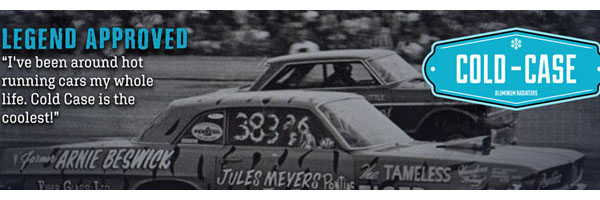Quote:
Originally Posted by Sirrotica

One of the most important things to realize is the 5-10 micron particulate is the most damaging size of particulate that causes engine wear. It passes through a spin on filter freely as the spin on is a huge compromise because of the priority oiling system that supplies the bearings and other internally lubricated parts. If the engine is needing more oil that the filter can pass due to viscosity, partially restricted media, or just high engine RPMs it goes into by pass mode and only filters a small percentage of oil anyway and what reaches the bearings and other parts is largely unfiltered.
Because the spin on filter has to do double duty and balance between filtering oil and making sure the engine is not starved for oil it does a half a$$ed job of keeping oil clean. That was the way Detroit engineers designed the full flow system and it's priority is not filtering oil, it's priority is keeping any oil, filtered or not to the engine parts.
In contrast a bypass filter system, filters all the oil that is sent to it to a high degree slowly, because it never has to supply the internally oiled engine parts. A bypass system is in a separate loop that has only one duty, that is to clean the oil down to a very high standard that will remove the 5-10 micron dirt that the full flow filter cannot remove and return to the sump. That is because of the compromise filtering system that Detroit engineers have designed is better than no filter at all, however it leaves much to be desired as far as efficiency. The way the full flow system is designed is when the fine particulate that can't be filtered out because of the pores in the media are too large, then you have to toss the oil away to get rid of the fine particulate.
To me the fine particulate should also be filtered out, and then the oil lasts much longer and less damage to the engine as far as the fine particulate that continues to circulate through the full flow filter. This increases oil life as well and engine part longevity, there is no down side to a bypass filter system, unlike the full flow system that is inefficient and when the oil is saturated with dirt the full flow cannot remove the only alternative is to throw the oil away. If the oil is filtered to a higher degree all the time it can go a minimum of 3 times longer before being changed. Changing a $2.50 filter and adding a quart of makeup oil not only extends the life of the oil and engine, it saves money.
A bypass system will pay for itself in 7-10 of your conventional oil change intervals, if you change cars it can be readily switched over to the next car, saving you the purchase of a new system each time you change cars.
One thing that I have to clarify about what the Joe Gibbs site says about the appearance of oil and using that to judge when oil should be changed. Oil can take on a darker color and in the case of diesel engines appear completely black and still be nearly clean as when it was added to the engine. The additive package in diesel oil will turn the oil dark or even black and cannot be used as an accurate gauge of when to change oil. Anyone that has owned a diesel knows that in 5 minutes after changing oil and filter the oil is nearly as dark in color as what they just drained out.
That said the only real way of knowing beyond a doubt if the oil is analytically clean is to send it to a lab and have it tested. Any company that is in the business of selling oil wants you to change it frequently thereby selling more of their product, hence Gibbs telling you if it looks dirty, it is dirty. Change bypass filters and save the oil, and save internal engine wear at the same time.
|
I agree it's the best prevention because as I said it is the suspended solids that kill the engine.
No matter how good the oil is if it's full of microscopic suspended diamonds that are small enough to pass through the filter then all you have for oil is really fine polishing compound. It slowly "sands down" the inside of the engine. The main job oil does is heat transfer and next is lubrication. The more oil capacity you have the bigger heat sink and the more dilute the suspended solids (The old saying, "Dilution is the solution to the pollution."). The more filtration/filter area/smaller micron you have the better you control particulates in the oil. Of course, as you said, there is a point where you can make the filter so fine it won't flow.
I put that in a nut shell so. Basically it's a balance that has to be met for the engine and application.
P.S. Interesting side note on oil and heat transfer: I found out the "hard way" that I have enough oil capacity along with radiator size to run my car in 90F weather with no issues. It runs on the higher side of the scale but not outside the acceptable range.
I was headed to the car show a couple weeks ago and went and started the car to let it warm up. I went to head out and I looked at the temp gauge and it was higher than normal for the warm up period and the ambient temp. Then it dawned on me the fans hadn't kicked on. Well, I popped the hood and looked at it and for sure they weren't on. I started checking things and went to play with the controller on the fans and noticed it was cranked all the way to the highest setting and the controller didn't respond to changes. So I looked at the fuse and it was FRIED too. Melted so bad I couldn't get it out of the holder but nothing wrong with the wire. I wondered how the hell that happened because about two weeks before I played with it for 15min getting the things to kick on where I wanted so I knew where the setting was supposed to be! Then I wondered when the hell that happened. Long story short I hashed it out and it had to have happened at the car show two weeks before, I'm guessing. I had the hood open and some SOB must have come by and twisted the controller all the way over. I had driven it around, rodded on it and everything during that time and the weather had gotten warmer and I noticed it was running a little warmer but the weather was warmer so... Anyway, thus, I assume, I ran around for about two weeks with no fans and flogged on the car in 90F plus temp. I have an 8qt Canton pan, 1.5qt Accusump and a 4core brass radiator and Al heads.
An interesting, unwanted expriment...












 My mind immediately thought of "bypass" as if the filter were plugged and bypassing. Read it wrong... "Dyslexia really wrecks you (me)". lol
My mind immediately thought of "bypass" as if the filter were plugged and bypassing. Read it wrong... "Dyslexia really wrecks you (me)". lol 

 Linear Mode
Linear Mode



